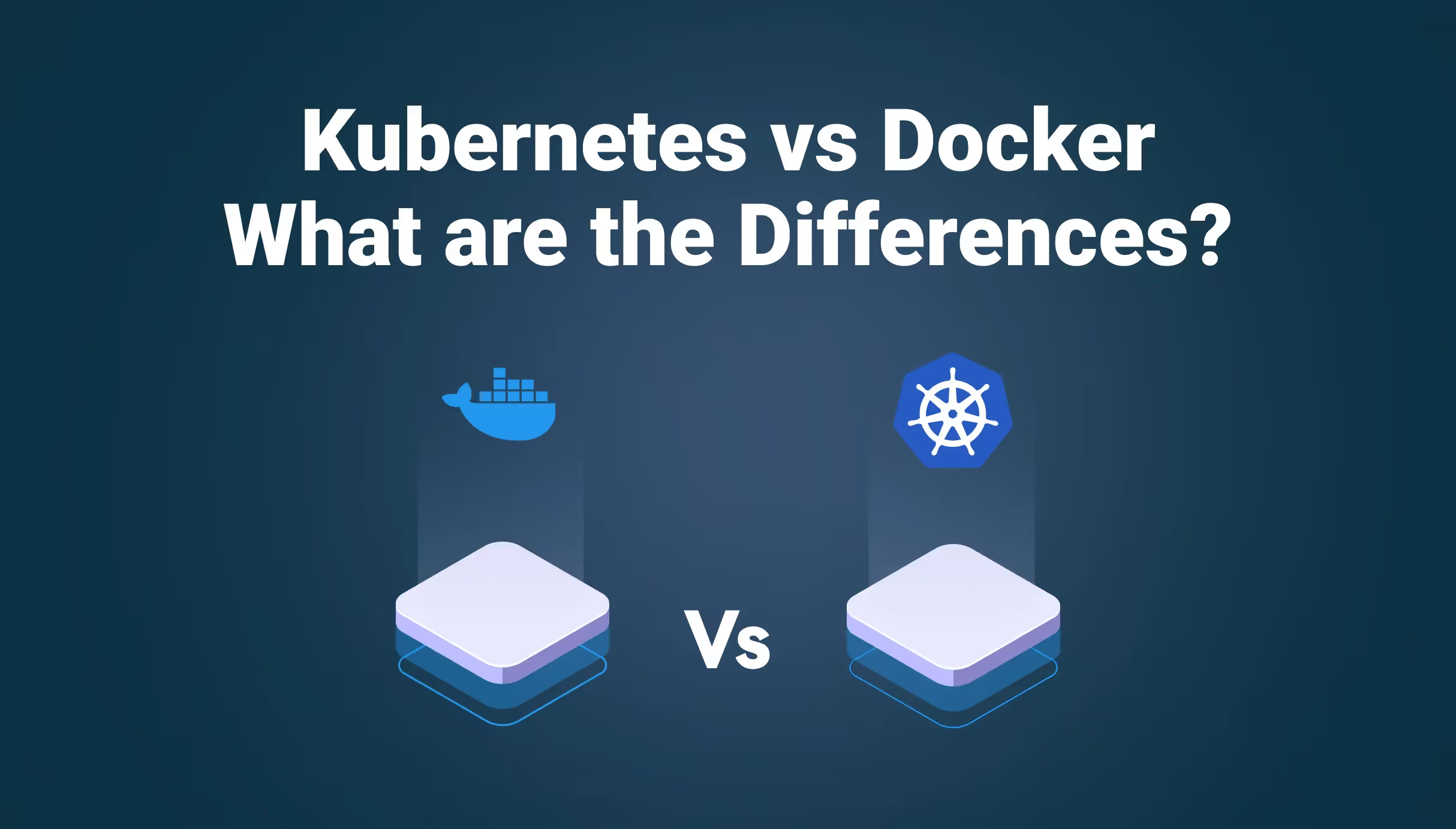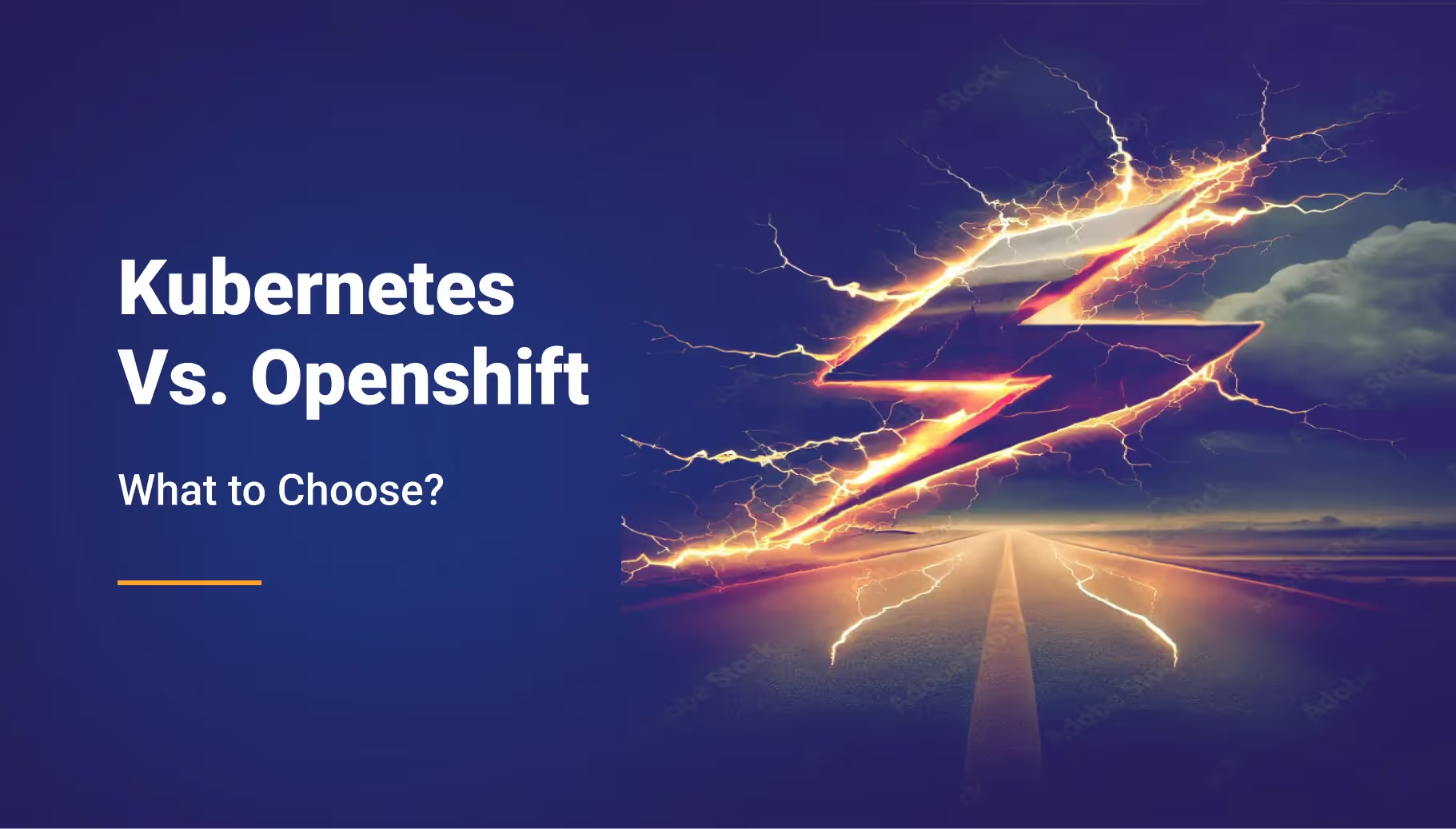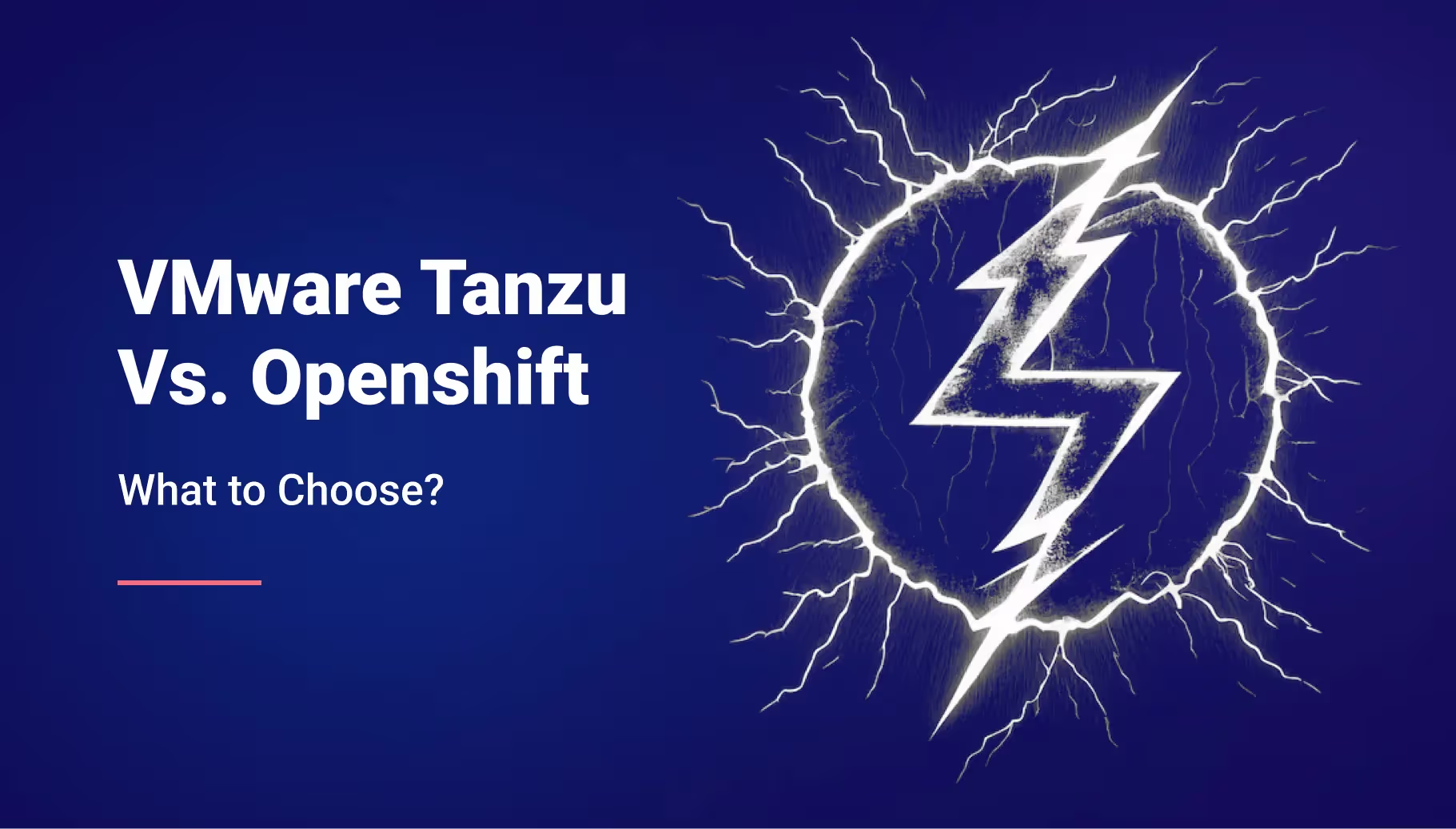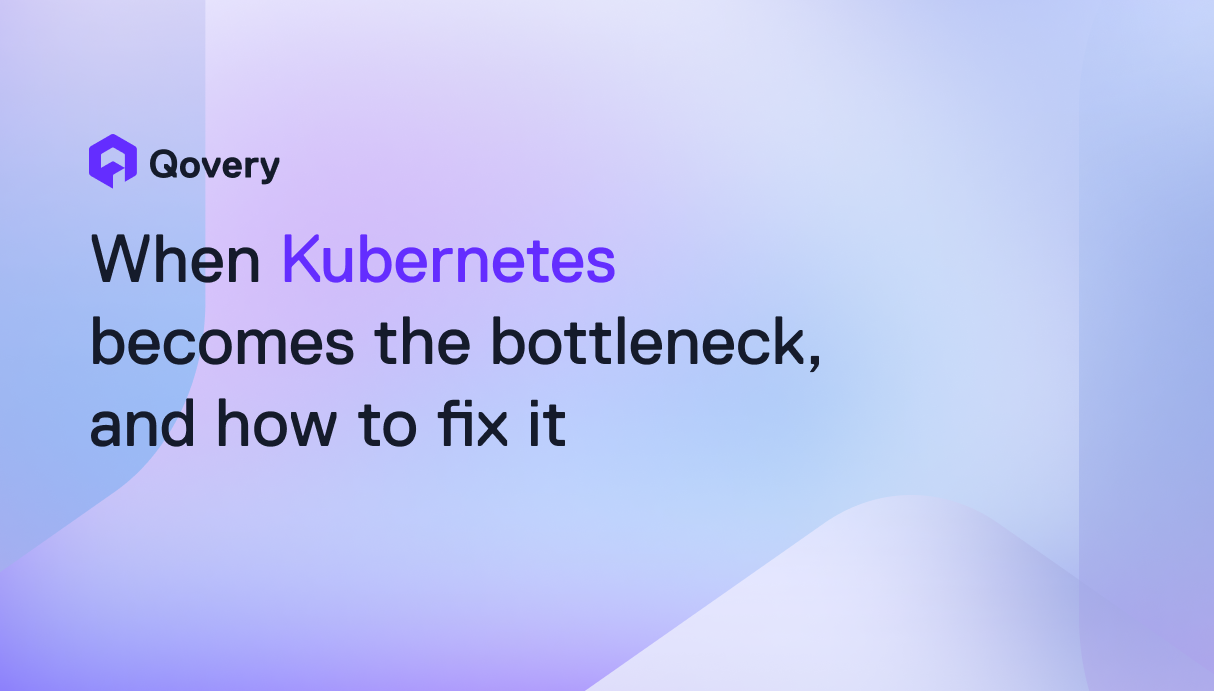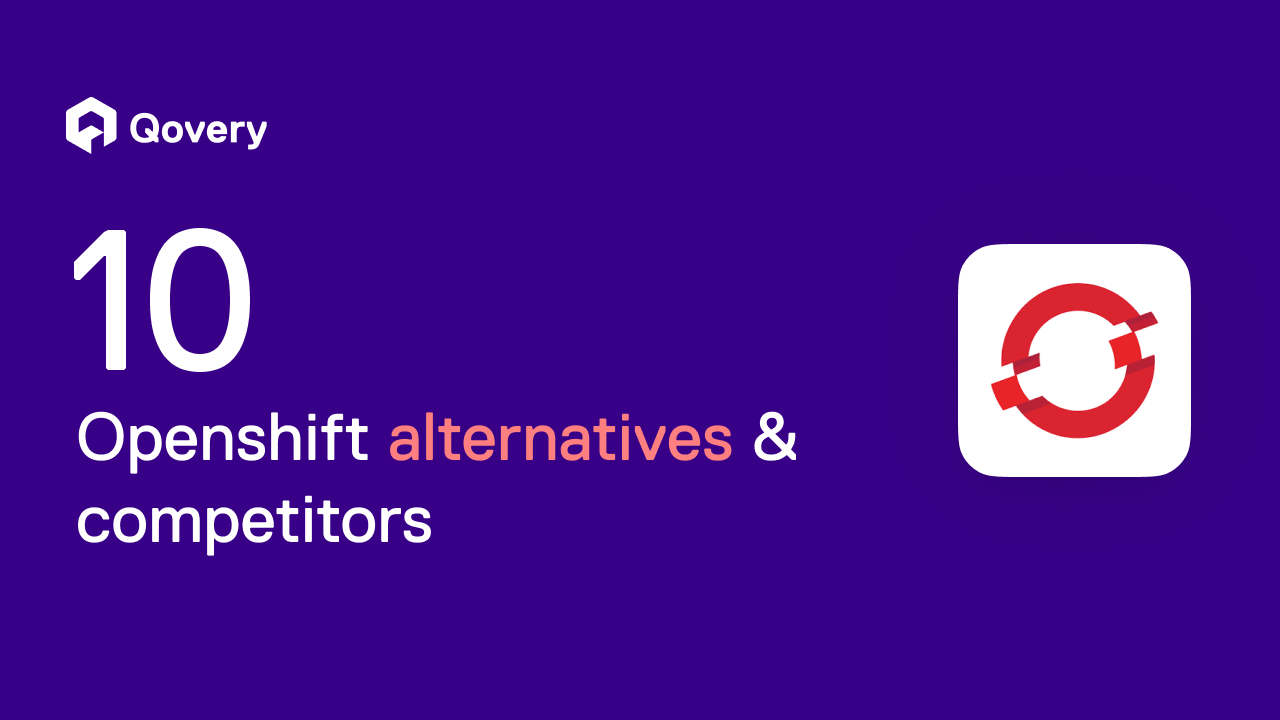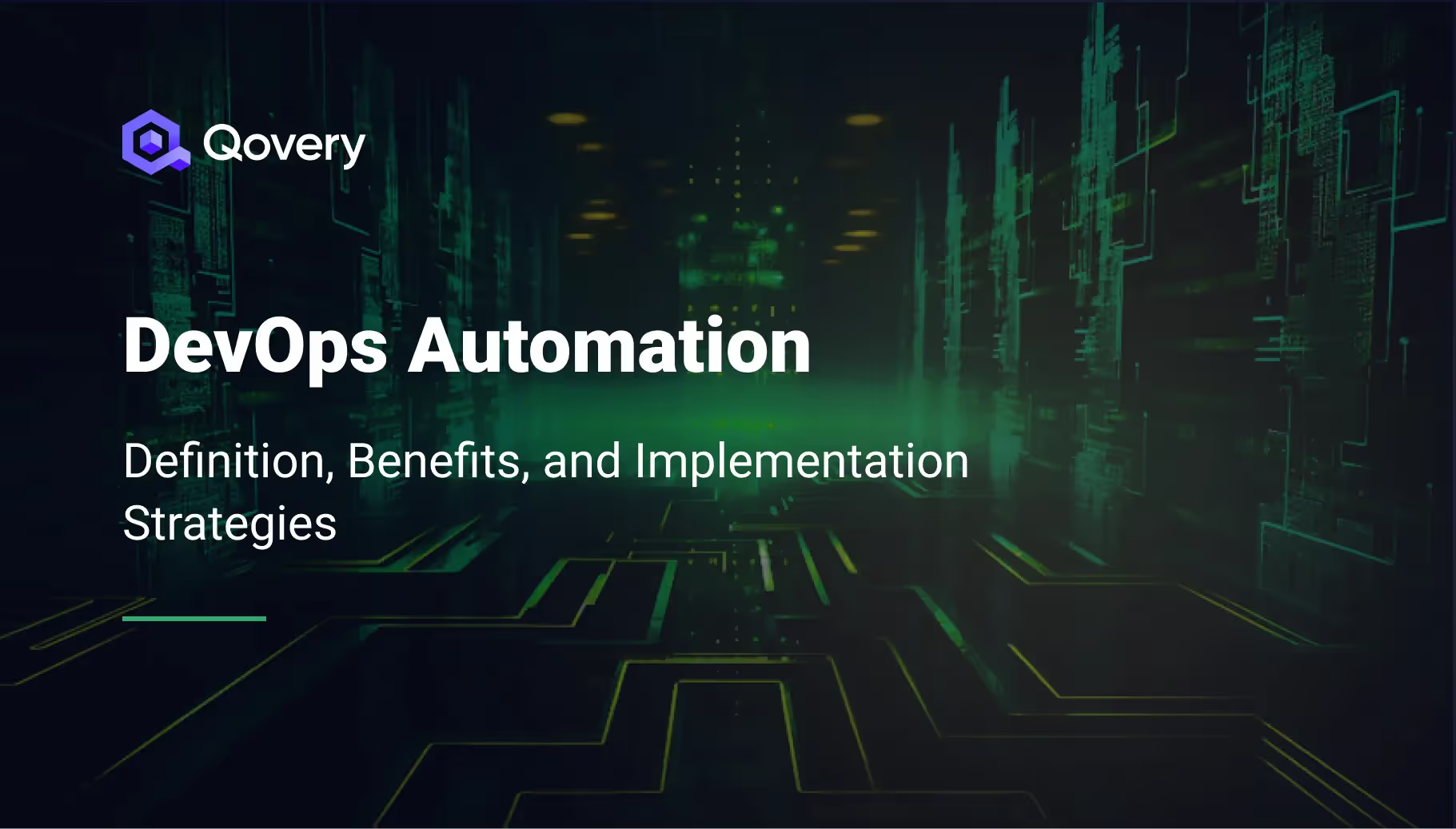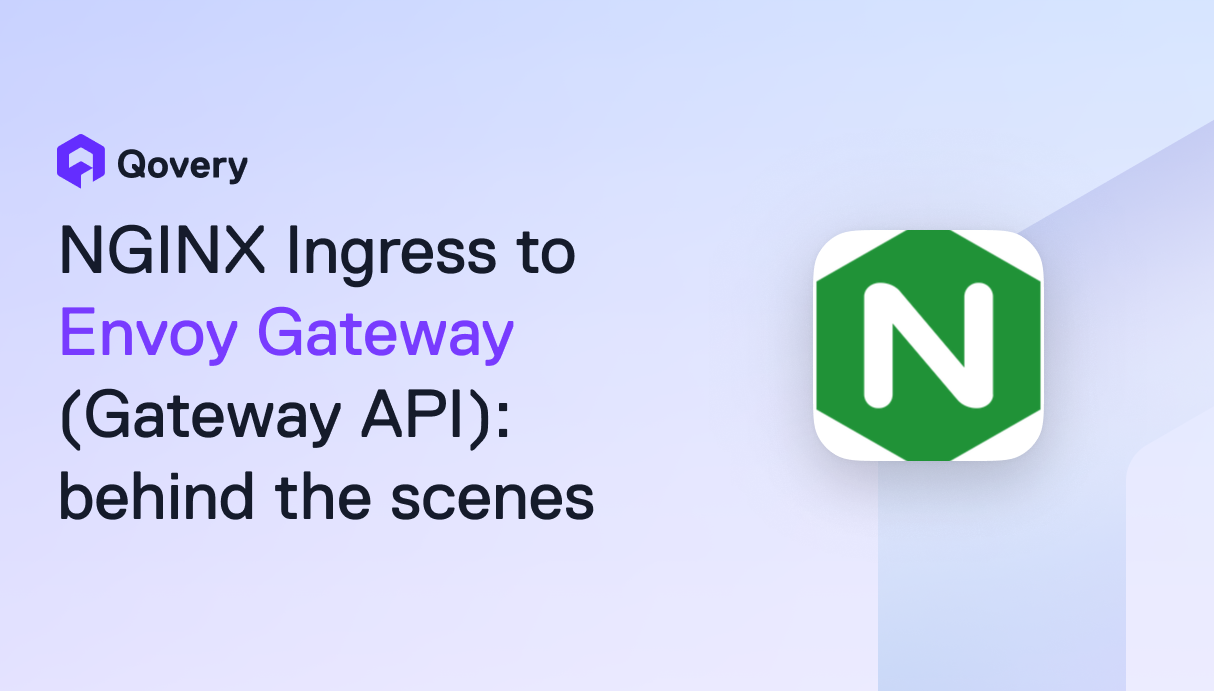
Are DevOps Engineers Really Essential? A Look at Current Demand

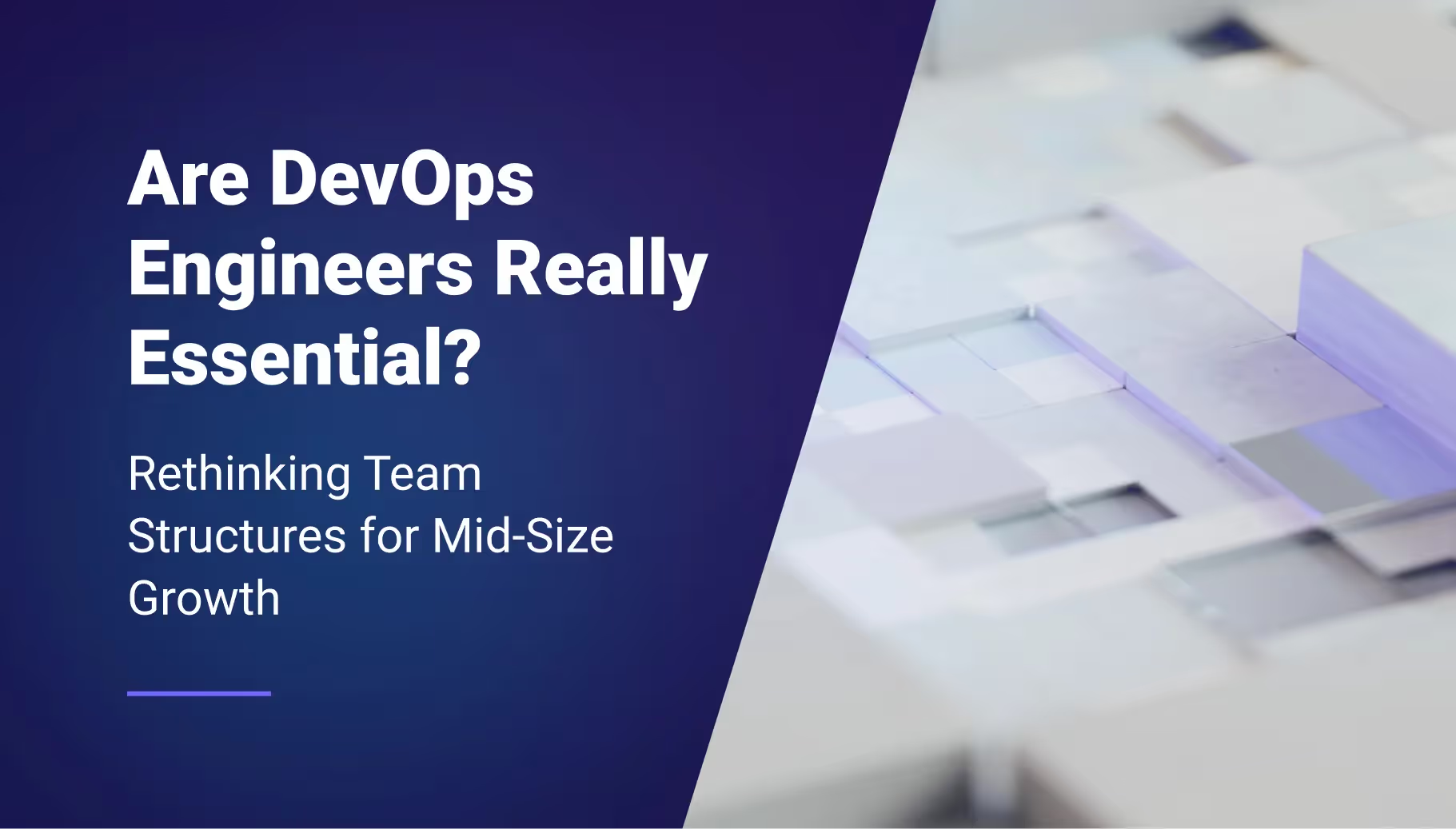

Key Points:
- Hiring DevOps engineers is costly and competitive, with high salaries and long hiring times, especially for mid-size companies.
- Automating DevOps processes reduces reliance on manual work, lowers costs, increases productivity, and empowers existing engineering teams.
- Qovery offers a Kubernetes management platform that simplifies deployments, infrastructure management, and scaling, reducing the need for specialized DevOps hires.
The DevOps Hiring Dilemma
When a company achieves first success and its product gains traction, its next growth phase starts with scaling out teams and strengthening the product development processes. During this time, infrastructure and deployment efficiency become focus points for their engineering organization.
The need for managing infrastructure and deployment operations is usually handled by building a DevOps team, which poses multiple challenges when deciding how to expand these roles within the teams.
Are DevOps in Demand?
The deep knowledge required to build, structure, and manage production workloads makes for the DevOps skills to be highly sought after, often commanding salaries around $125k and up to $250k for senior positions.
With the rise of remote work and an increasingly competitive job market, hiring a DevOps engineer becomes a bidding war with bigger, more established companies also needing these talents. DevOps have become one of the hardest technical roles to fill for recruiters, leading to longer hiring times and increased costs.
Even when succeeding in building a DevOps team, they incur additional costs around training, infrastructure overheads, or licenses, furthermore, the team’s rollout also has a deep impact on the rest of the engineering organization.
Challenges with DevOps Team Integration
- All engineering teams need to align on specific methods of production management.
- From feature development to operations, pipelines need to be standardized, requiring extensive and time-consuming collaboration to set up.
- During this transition, dedicated DevOps teams are often perceived as gatekeepers instead of enablers by other engineers, as they concentrate most production management knowledge for the whole organization.
- This transition period, which can last up to a few years in more complex settings, often leads to lower productivity as friction increases between teams.
- DevOps engineers end up investing a significant amount of time convincing and building a culture around the operational excellence desired for an organization, which skews them off their initial objective.
Rethinking the DevOps Equation: Automation as the Catalyst for Change
The traditional model for DevOps teams to operate is to rely on manual processes. These efforts, while bringing velocity and agility initially, often lead to an increase in human errors and inconsistencies. Issues and incidents of various criticality arise and impact customers as well as other teams within the organization to solve and fix forward.
The Role of Automation in DevOps
The main way to de-risk and keep momentum during the introduction of DevOps practices is to embrace Automation.
Automation-driven DevOps is built around repeatable and immutable processes that strengthen the platform and improve production reliability. Automated workflows built to support many teams can replace multiple custom manual interventions. They are also available at all times and without the need for expert supervision.
Supporting recurring routines made by DevOps with automation also liberates their time for strategic decisions and the development of better tooling for engineers. This can only happen when day-to-day operations are safe and ensured by verified and repeatable actions.
Benefits of Automation Across the Product Development Lifecycle
- From automating releases through continuous integration to infrastructure management and testing, all parts of the product development lifecycle can be supported by resilient automation.
- Deployments take less time to reach production, and infrastructure rollout can be done in the background in parallel with other tasks.
- These evolutions ripple all throughout the organization and are felt as a general increase in productivity.
- This effort requires less expertise across the board, as all engineering organizations benefit from the same automation work built before them.
- Knowledge is shared through the availability of self-service tooling, free from gatekeeping.
Automation's Criticality for Mid-Size Companies
For mid-size companies, the streamlining effort of DevOps is even more critical: as a structure finds its product-market fit and starts to scale, its infrastructure is bound to be tested through higher usage and regular updates. During this time, it is a tangible risk for infrastructure to become unstable, impacting product delivery and velocity in a crucial time for business.
This is where automation lifts those barriers, enabling teams to keep their focus where it matters, empowering them over their production and operation, and delivering at a good pace without impacting stability or service quality.
Qovery: Empowering Your Developers with DevOps Automation
Qovery is a powerful Kubernetes management tool built to empower engineering organizations in their transition toward sustainable infrastructure and delivery. It caters to modern application deployment and management focused on reliability.
It empowers developers to autonomously deploy and manage their applications within a controlled environment while reducing DevOps costs for a growing engineering organization.
The platform prioritizes critical aspects of code delivery:
- It offers an accessible abstraction layer built on top of Kubernetes, letting developers access the full array of powerful features the solution offers without the need for Kubernetes expertise.
- Being a cloud-agnostic solution, it supports seamless deployments to AWS, GCP, or Azure on existing accounts, letting teams transition to the platform easily.
- For deployment and testing purposes, it offers a comprehensive environment provisioning solution. It lets developers manage multiple versions of their applications autonomously and safely.
When products gain traction and see their usage rise, Qovery offers sensible, automated, and cost-effective infrastructure scaling, ensuring a consistent quality of service for users and confident growth for the company.
All these features are built for engineers first. As the main audience, they benefit from a developer experience with a minimal learning curve. It aims at keeping engineers in their optimal workflow, often staying within their coding environment, while benefiting from a reliable, powerful, and scalable platform.
Qovery empowers and gives confidence to engineering organizations to take products to the next level. By reducing reliance on manual infrastructure and deployment tasks, engineers keep focus on their product development, where their contributions matter most.
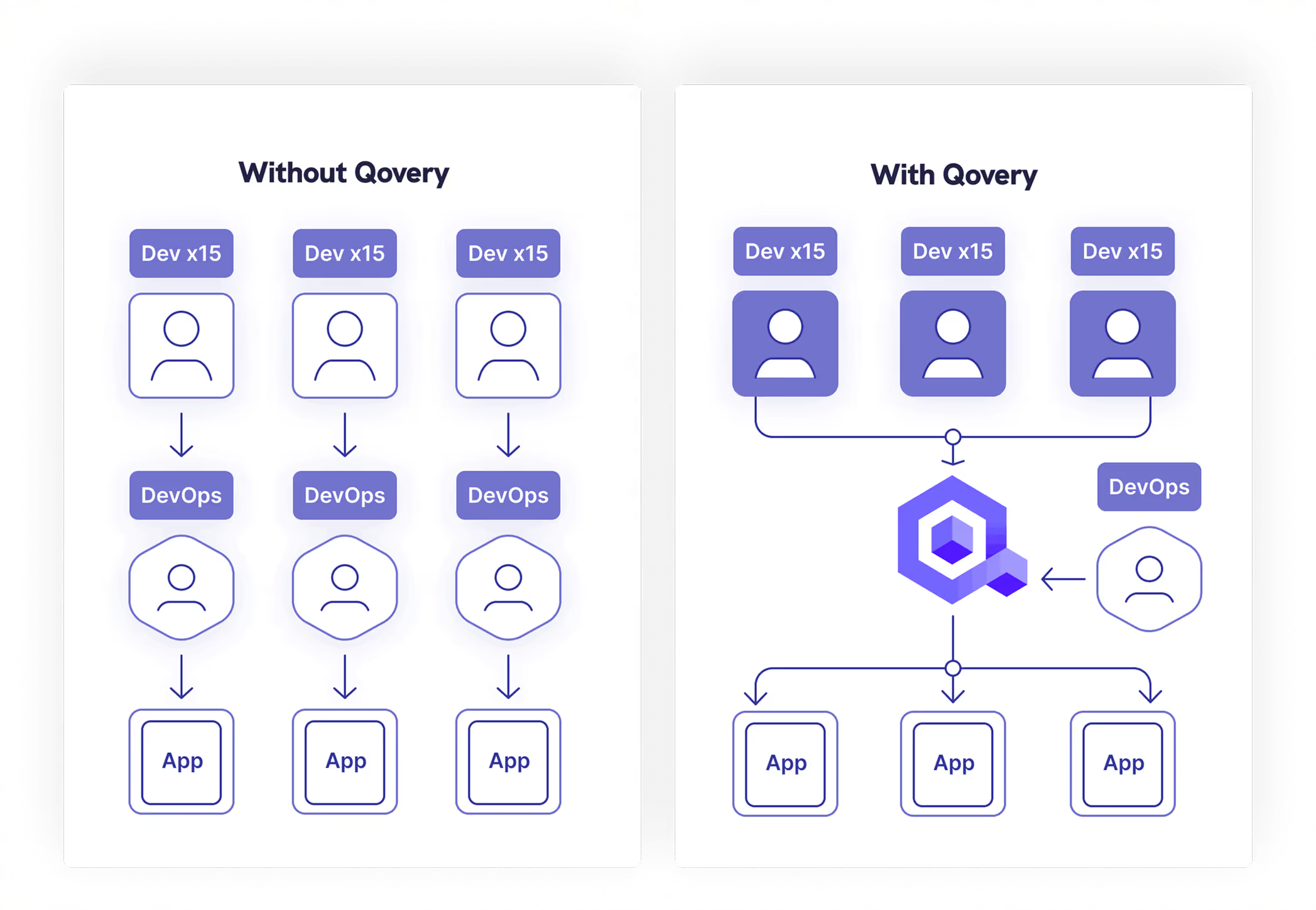
The Tangible Benefits: Cost Savings and Productivity Gains
When deciding to embrace automation tools, engineering organizations benefit in two main ways: cost savings and increased productivity.
Relying on automation tools leads to a lower need for hiring DevOps engineers within an organization. This reduced need for hiring directly impacts a midsize company’s bottom line as it also leads to reduced management needs and training time for newcomer engineers.
When relying on tools like Qovery, teams deeply reduce their time-to-market, for new products or feature improvements. Engineering teams can quickly build deployment pipelines for their application, automating all necessary workflows to bring their code and infrastructure changes to production reliably and quickly. Release cycles can shorten from weeks to days, bringing quicker user feedback, satisfaction and velocity.
"Qovery gave us the power of Kubernetes without the complexity. Our team can now deploy in three clicks, even during a live client general assembly meeting. We’ve reduced downtime, boosted our agility, and no longer worry about managing infrastructure." Florent Blaison, Co-founder & CTO at Syment
Flexible scaling capabilities also bring infrastructure closer to the actual user needs. When companies don’t keep a close eye on their infrastructure usage, it is very easy to end up over-provisioning and over-spending. Having this part automated optimizes cloud costs to what the product exactly needs and keeps spending lean as a product grows out.
By gaining automated control over their pipeline, engineers build a development environment that inspires confidence in their process. This minimizes the risk of incidents and liberates their productivity into the other parts of their work as they will have more time and dedicated space for more impactful work.
A Strategic Approach to Scaling: Augment, Don't Just Hire:
For mid-size companies growing rapidly to meet the demand of their market, it is natural to think of hiring all engineering teams equally for reliable growth to set in. This is often the more traditional way of scaling an organization: if something works at a small size, simply grow everything out proportionally and the performance should follow.
Limitations of Traditional Scaling Through Hiring
- This vision can be limiting when encountering the new difficulties of a scaling company.
- Hiring implies newer management and organizational pipelines that directly impact the productivity of all teams at hand.
- This transition is involved for all teams, it comes with friction and high cost to navigate successfully.
A Strategic Approach to Scaling: Augment, Don't Just Hire
The more strategic approach is to think of tooling as a way to augment the capabilities of existing teams: helping them be more focused and productive, instead of simply adding more headcount to get to that next level.
Empowering engineering teams with powerful tooling, and helping them handle more DevOps responsibilities without the need for deep expertise, is a solution to take a step forward with confidence and control.
Automation tools like Qovery offer this steady support for engineering teams to learn and take control over their infrastructure and deployment pipelines with an ease of access that keeps teams confident and productive.
Investing in powerful tooling is an easier way to scale out a team. It becomes a way more cost-efficient investment with a quick return on investment, letting teams keep their agility and velocity in the middle of growth.
Check out how Syment avoided the need to hire a dedicated DevOps engineer, saving an estimated €120,000-€140,000 annually.
Conclusion: Embrace DevOps Automation for Sustainable Growth
For mid-size organizations navigating the complexities of scaling, solely relying on hiring DevOps engineers presents significant challenges. The high demand for DevOps talent drives up costs, prolongs hiring cycles, and introduces organizational friction during the transition period. Even with a dedicated team in place, the need for extensive collaboration, training, and process alignment can impede productivity and slow down growth.
It is important for engineering organizations to embrace automation when building out processes to control their infrastructure and deployment strategy. DevOps engineering is a complex pivot that, without focusing on automation, can lead to product instability and a general productivity decrease. Intentionally deciding on building reliable, repeatable, and scalable processes benefits the company and its products in the long run.
Qovery: A Transformative Solution
This is where Qovery becomes a transformative solution.
- By automating critical DevOps processes, Qovery reduces the dependency on specialized hires, significantly lowering operational costs while enhancing productivity.
- Its powerful platform empowers engineering teams to manage deployments, infrastructure, and scaling seamlessly, without requiring deep DevOps expertise.
- This enables organizations to maintain agility, ensure infrastructure stability, and focus on delivering exceptional products.
Ready to elevate your engineering efficiency and drive sustainable growth? Discover how Qovery can transform your DevOps strategy. Request a Demo Today and discover how DevOps automation can drive sustainable growth

Suggested articles
.webp)



.svg)
.svg)
.svg)
